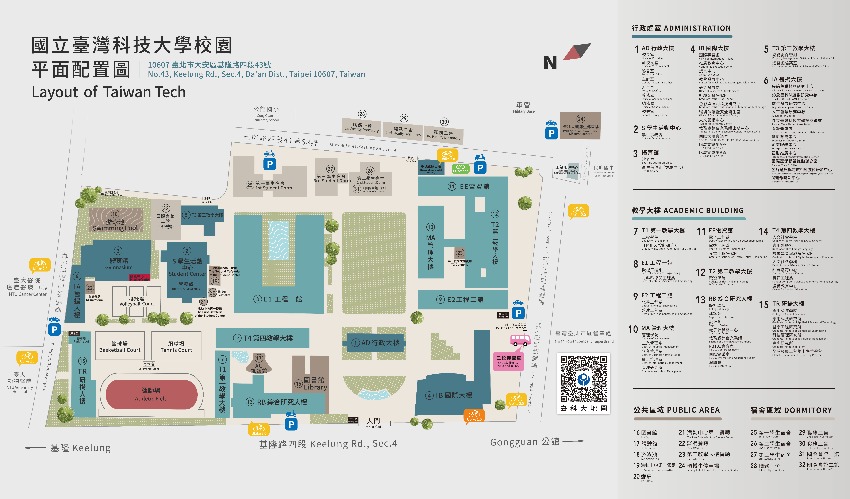[D Area] Taiwan Popular Culture (NTNU)
Outline of Course
What is "Taiwan"? What is "Taiwan Popular Culture"?
How does "Taiwan Popular Culture" provide researchers with a snapshot of Taiwanese consumer society?
Why and how, do fans of popular culture fall in love with particular fandoms?
How is pop culture content produced and consumed?
How can one understand the relationship between Taiwan’s popular culture and its democratic political process?
The Eslite Bookstore(誠品書局), Shiny 3 sisters(閃亮三姊妹), Hello Kitty, Pili Puppet Show(霹靂布袋戲), Cape No.7(海角七號), Lantern Soy sauce Braised Food(燈籠滷味), Jay Chou(周杰倫), Starbucks(星巴克), A-Bian Doll(扁娃), the Beehive Fireworks Festival(鹽水蜂炮), the film Our Times(我的少女時代), the TV drama Back to the Good Times(花甲男孩轉大人)etc.
These cultural touchstones could all be said to contribute to an iconic image of contemporary Taiwan popular culture. Not only has each attracted its own set of fans, but they also represent a selection of the diverse local vibes and subcultural scenes in Taiwanese society, and hint at the ways variations in taste, are never independent from issues of class, and ethnic identity.
Course Goals
In past 30 years Taiwanese society has experience the rapid development of democracy and the growth of a consumer society. As part of these cultural and political shifts, an endless proliferation of pop culture symbols, idols, and icons have largely replaced the authoritarian ideology of the ROC state. (Re)producing new personal identities and shifting collective identities from a collage of these consumer products has already become part and parcel of Taiwanese daily life. In so far as these consumer-capitalist practices have been essential to the successful establishment of Taiwanese democracy, one can also say that examining them is crucial if we want to understand the attendant emergence and construction of Taiwanese ethnic and nationalist identities.
Culture can be regarded as infinite, fluid, made by and for the people and essentially a work ‘in progress’ that is constituted by everyday practices. It follows that the study of popular culture must also keep an ear to the pulse of the latest trends.
Thus, this class doesn’t quite fit within the conventional frameworks of courses in Taiwanese cultural or political history, (these often tend to focus on the Taiwanese bourgeoisie's so called "high culture” and its state-funded manifestations) instead, we will shift our focus to the most commonplace (one might say vulgar or ‘low’) forms of popular culture which are present in Taiwanese daily life and popular consumer culture.
Together, we will take another look at a range of quintessentially ‘Taiwan’ pop cultural phenomena such as night-markets, shopping and brand-loyalist queueing culture, betel nut girls, itinerant erotic dance trucks, Taiwanese appropriation of Japanese pop culture (porn/erotica, ACG, idol dramas) baseball, pulp fiction, Taiwanese "kawaii" culture…etc…all of which are so familiar to Taiwanese people that we often take them for granted as we go about our daily routines. In our reexamination of popular culture, we will connect our analyses of disparate objects using the following five themes: 'Cultural Commodities'; 'Bodily performance and Representation(s)'; 'Cultural crossover and Consumption Practices', 'Identity and Democracy', 'Cultural Hybridity—Made in Taiwan.' We will return to these themes regularly in our weekly discussions.
Through detailed analysis of some of Taiwan’s most iconic pop cultural phenomena, this course doesn’t presume to provide a comprehensive survey of Taiwan pop culture, nor will it teach students the ‘right way’ to read pop culture; instead it seeks to offer students to embrace new and more critical way of thinking, viewing and engaging with Taiwan pop culture.
After taking this course, hopefully you will be able to establish your own grassroots perspective on Taiwanese civil society, sharpen your perceptions of cultural phenomena you're interested in, and apply these insights to your future research and/or everyday practices.
Students will work with the instructor to accomplish the following goals⏤
- Understand how 'Taiwaneseness' is (re-)produced, circulated, practiced, and consumed in Taiwan’s popular culture.
- Recognize the essential fluidity of concepts such as 'Identity' and 'Culture' as they are articulated through daily practices. Understand the relationship between 'popular cultural practice' and the 'Taiwanese democratization.'
- Practice applying cultural studies theories in research and everyday life.
- Develop a critical perspective on contemporary Taiwanese social and cultural life.
Course Code: 3NG292701
For further information please visit Course System.
#GE Type: D
#NTNU General Education Course

